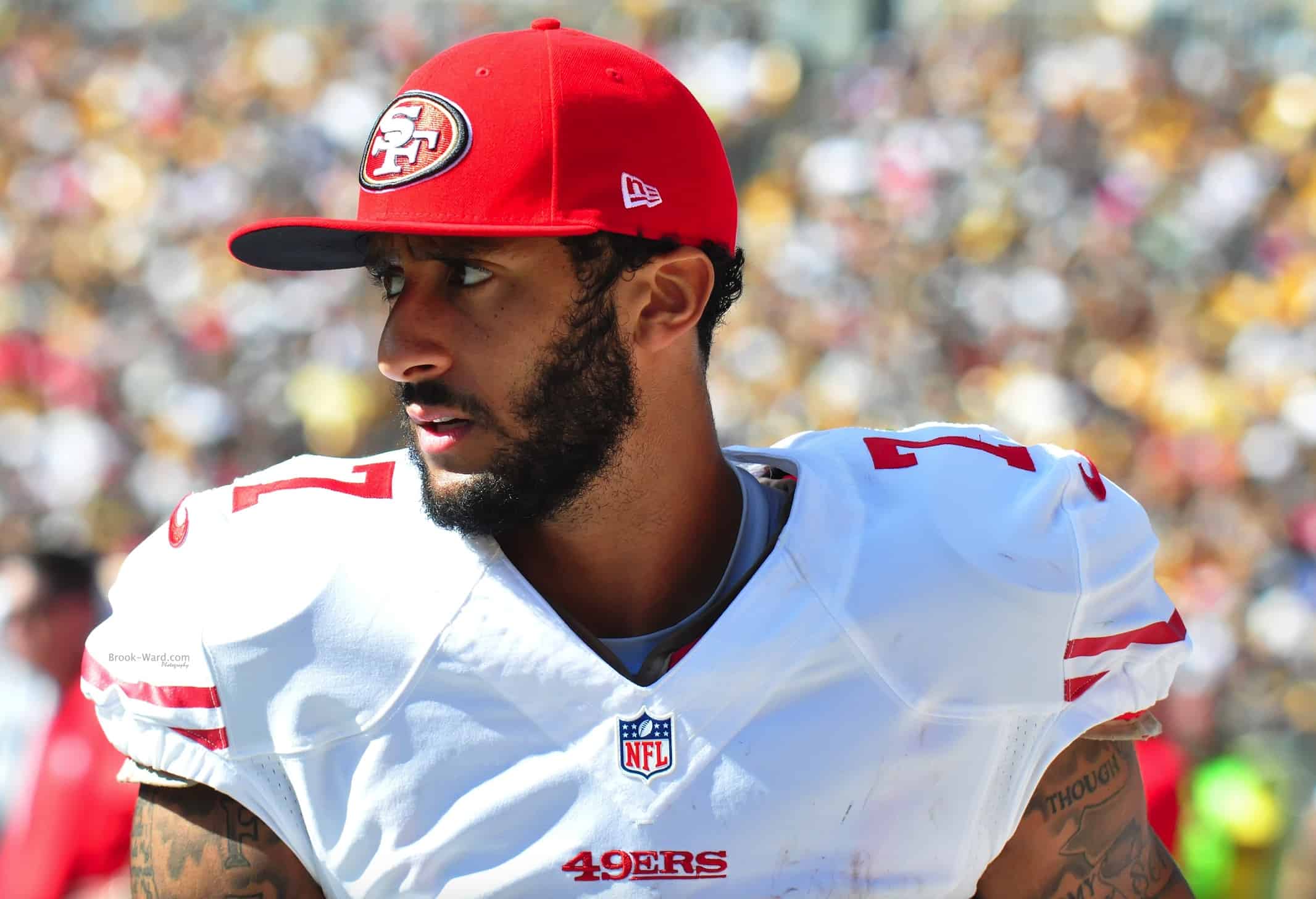Thirty years ago, Nike started their “Just Do It” campaign. It became one of the most recognizable ads and slogans on the market. It featured athletes like Wayne Rooney, Michael Jordan, and Kobe Bryant.
Despite a number of other ad campaigns, “Just Do It” remained Nike’s most successful. And it’s been given a 30th anniversary celebration. According to Vox, LeBron James, Serena Williams, Odell Beckham Jr., linebacker Shaquem Griffin, and skateboarder Lacey Baker will feature prominently. The face of the campaign, however, is Colin Kaepernick. He appeared in their first ad, bearing the tagline, “Believe in something. Even if it means sacrificing everything.”
Believe in something, even if it means sacrificing everything. #JustDoIt pic.twitter.com/SRWkMIDdaO
— Colin Kaepernick (@Kaepernick7) September 3, 2018
The reactions to Kaepernick’s role were swift. Some demanded all-out boycotts and others lit their shoes on fire.1 Some gladly announced Nike would become their brand of choice. For myself, I’m incredibly frustrated by the news of Kaepernick’s role in the campaign. I have strongly supported his protests against racism; but I’m angered by his buying into that which he protests.
****
It is painfully ironic that while working to promote civil rights and justice for people of color, Kaepernick has signed with a company that violates those rights at every turn. Nike is in Third World countries because of a history of colonialism taking the form of racial and economic injustice. Currently, Nike is threatening to fire over 30,000 employees in Indonesia rather than improve working conditions and pay. The vast majority of said employees are women and Muslim suffering the consequences of the long reverberations of that colonial history.
The workers have already won numerous battles, including not having to demonstrate that they were on their period to use the restroom to change hygine products and Nike ceasing the burning of waste rubber next to people’s homes. Yet Nike employees still suffer dangerous conditions like heat stroke and sexual harassment. Their ongoing efforts for greater protection and pay is risking them a complete loss of employment. That’s sacrificing everything.
Nike is using a movement for justice to turn a profit. As Team Sweat founder Jim Keady states, “The short of it is, Nike never does anything simply because it is the right thing to do. They are reeling because of the sexual misconduct allegations at headquarters and want to pivot attention away from that. They also see this as a way to endear themselves to one of their largest bases of customers – African Americans – to sell more sneakers.”
This use of social responsibility for profit is called “cause marketing.” A for-profit (Nike) and non-profit (Kaepernick) cooperate for mutual benefit. While some may say it’s a great way to spread awareness and promote a cause, others decry it as selling out.
A similar Nike-induced fallout took place five years ago. The 2013 NBA All-Star Game promo featured “Wing$” by Macklemore & Ryan Lewis. Not even six months old, the song had begun to solidify Macklemore as a socially-conscious hip-hop artist. While the original song denounced consumerism, the game promo cut out any mention. Macklemore was quickly labeled a sellout.
In response, Macklemore released a letter stating, “The song about consumerism was embraced on a national level, and played to the entire country of sports fans that tuned in. More people download the song, got the truth (the actual/full song) and we converted strangers that didn’t know who we were into fans. If that’s selling out to you, word. But to me that’s nothing but an all around win.”
Perhaps this is Kaepernick’s hope as well – he can use this opportunity to create a greater dialogue around central issues of racial and worker justice. He can reach those who would have never engaged the conversation to begin with. Perhaps he is not selling out, but rather buying in.
****
In their organizing philosophy, United Students Against Sweatshops states, “We believe that all of our struggles for a just world are intimately connected and that we should act in solidarity to avoid isolation and to build greater collective power.” I struggle to see Kaepernick’s sponsorship deal as an act of solidarity.
Kaepernick has bought into the same structures that he is fighting. Some might say it is a form of socially responsible investing, potentially using his voice for broader impact. I applaud Kaepernick for doing so. But I simply cannot trust a company like Nike. Over again, Nike has demonstrated that their business hijacks good causes to maintain their own economic structures of oppression and violence. The feel-good ads do not generate honest change in the factory working conditions.
I am frustrated and saddened by Kaepernick’s decision to sign with Nike. I respect the sentiments of those who view it as an affirmation of racial justice; but I ultimately see it as a betrayal of that same message. I can only hope now that Kaepernick will use his wisdom and commitment to transform both the racism of America and the racism of Nike. But until I see Kaepernick raise his voice against sweatshops and the racialized economic violence they use, I must say goodbye Nike, goodbye Kaepernick.
***
Image courtesy FlickrCC user Brook Ward.
- This was not the first time Nike addressed racial tension. In 1996, they introduced the “Hello World” campaign, in which they used Tiger Woods to challenge racial biases in golf. This campaign also led to boycotts. ↩


